Related Research Articles

Abraham Johannes Muste, usually cited as A. J. Muste, was a Dutch-born American clergyman and political activist. He is best remembered for his work in the labor movement, pacifist movement, antiwar movement, and civil rights movement.

Hubert Bland was an English author. He was known for being an infamous libertine, a journalist, an early English socialist, and one of the founders of the Fabian Society. He was the husband of Edith Nesbit.

Henry Havelock Ellis was an English-French physician, eugenicist, writer, progressive intellectual and social reformer who studied human sexuality. He co-wrote the first medical textbook in English on homosexuality in 1897, and also published works on a variety of sexual practices and inclinations, as well as on transgender psychology. He developed the notions of narcissism and autoeroticism, later adopted by psychoanalysis.

Edward Carpenter was an English utopian socialist, poet, philosopher, anthologist, an early activist for gay rights and prison reform whilst advocating vegetarianism and taking a stance against vivisection. As a philosopher, he was particularly known for his publication of Civilisation: Its Cause and Cure. Here, he described civilisation as a form of disease through which human societies pass.

Jenny Julia Eleanor Marx, sometimes called Eleanor Aveling and known to her family as Tussy, was the English-born youngest daughter of Karl Marx. She was herself a socialist activist who sometimes worked as a literary translator. In March 1898, after discovering that her partner Edward Aveling had secretly married the previous year, she poisoned herself at the age of 43.
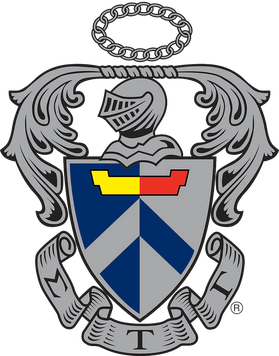
Sigma Tau Gamma (ΣΤΓ), commonly known as Sig Tau, is a United States college social fraternity founded on June 28, 1920, at the University of Central Missouri. The fraternity was founded as a result of friendships made while some of the founders fought in World War I in France.

Blessed Antonio Francesco Davide Ambrogio Rosmini-Serbati was an Italian Roman Catholic priest and philosopher. He founded the Rosminians, officially the Institute of Charity or Societas a charitate nuncupata, pioneered the concept of social justice, and Italian Liberal Catholicism. Alessandro Manzoni considered Rosmini the only contemporary Italian author worth reading.
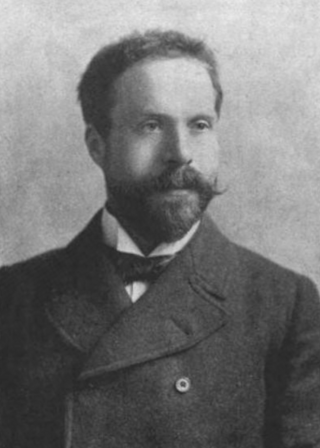
Ernest Percival Rhys was a Welsh-English writer, best known for his role as founding editor of the Everyman's Library series of affordable classics. He wrote essays, stories, poetry, novels and plays.
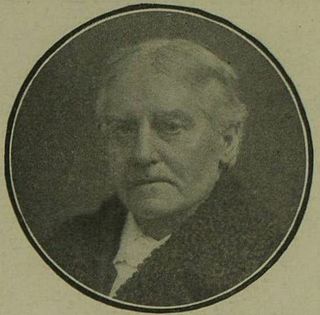
Stewart Duckworth Headlam was an English Anglican priest who was involved in frequent controversy in the final decades of the nineteenth century. Headlam was a pioneer and publicist of Christian socialism, on which he wrote a pamphlet for the Fabian Society, and a supporter of Georgism. He is noted for his role as the founder and warden of the Guild of St Matthew and for helping to bail Oscar Wilde from prison at the time of his trials.

Edward Reynolds Pease was an English writer and a founding member of the Fabian Society.

Frank Podmore was an English author and founding member of the Fabian Society. He is best known as an influential member of the Society for Psychical Research and for his sceptical writings on spiritualism.

The Ethical movement is an ethical, educational, and religious movement established in 1877, by the academic Felix Adler (1851–1933). In effort to develop humanist codes of behavior, the Ethical movement emerged from the moral traditions of the secular societies of Europe and the secular society of the United States of the 19th century. In practice, the Ethical movement organized themselves as two types of organization: (i) a secular humanist movement and (ii) a moral movement, with a religious approach.

Charlotte Mary Wilson was an English Fabian and anarchist who co-founded Freedom newspaper in 1886 with Peter Kropotkin, and edited, published, and largely financed it during its first decade. She remained editor of Freedom until 1895.

Thomas Davidson was a Scottish-American philosopher and lecturer.
The Pease family is an English and mostly Quaker family associated with Darlington, County Durham, and North Yorkshire, descended from Edward Pease of Darlington (1711–1785). They were 'one of the great Quaker industrialist families of the nineteenth century, who played a leading role in philanthropic and humanitarian interests'. They were heavily involved in woollen manufacturing, banking, railways, locomotives, mining, and politics.
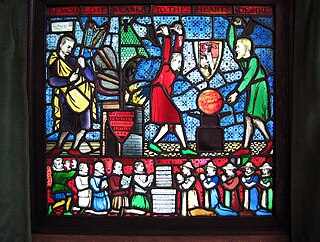
The Fabian Window is a stained-glass window depicting the founders of the Fabian Society, designed by George Bernard Shaw. The window was stolen from Beatrice Webb House in Dorking in 1978 and reappeared at Sotheby's in 2005. It was restored to display in the Shaw Library at the London School of Economics (LSE) in 2006 at a ceremony presided over by then-Prime Minister Tony Blair, emphasising New Labour's intellectual debt to the Fabians.

The Fabian Society is a British socialist organisation whose purpose is to advance the principles of social democracy and democratic socialism via gradualist and reformist effort in democracies, rather than by revolutionary overthrow. The Fabian Society was also historically related to radicalism, a left-wing liberal tradition.
Caroline Haddon was a British philosophical writer. She was the sister-in-law of James Hinton, "the great influence of her life", and she wrote several works about Hinton and his thought.

The Socialist Labor Party (SLP) is a political party in the United States. It was established in 1876, and was the first socialist party formed in the country.
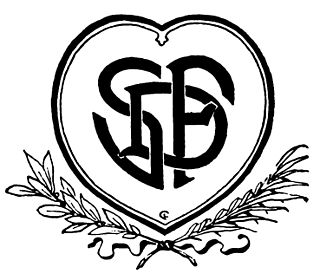
The Social Democratic Federation (SDF) was established as Britain's first organised socialist political party by H. M. Hyndman, and had its first meeting on 7 June 1881. Those joining the SDF included William Morris, George Lansbury, James Connolly and Eleanor Marx. However, Friedrich Engels, Karl Marx's long-term collaborator, refused to support Hyndman's venture. Many of its early leading members had previously been active in the Manhood Suffrage League.
References
- Knight, William A. Memorials of Thomas Davidson: The Wandering Scholar. Boston and London: Ginn and Co, 1907.
- Pease, Edward R. The History of the Fabian Society. New York: E.P. Dutton and Co., 1916.